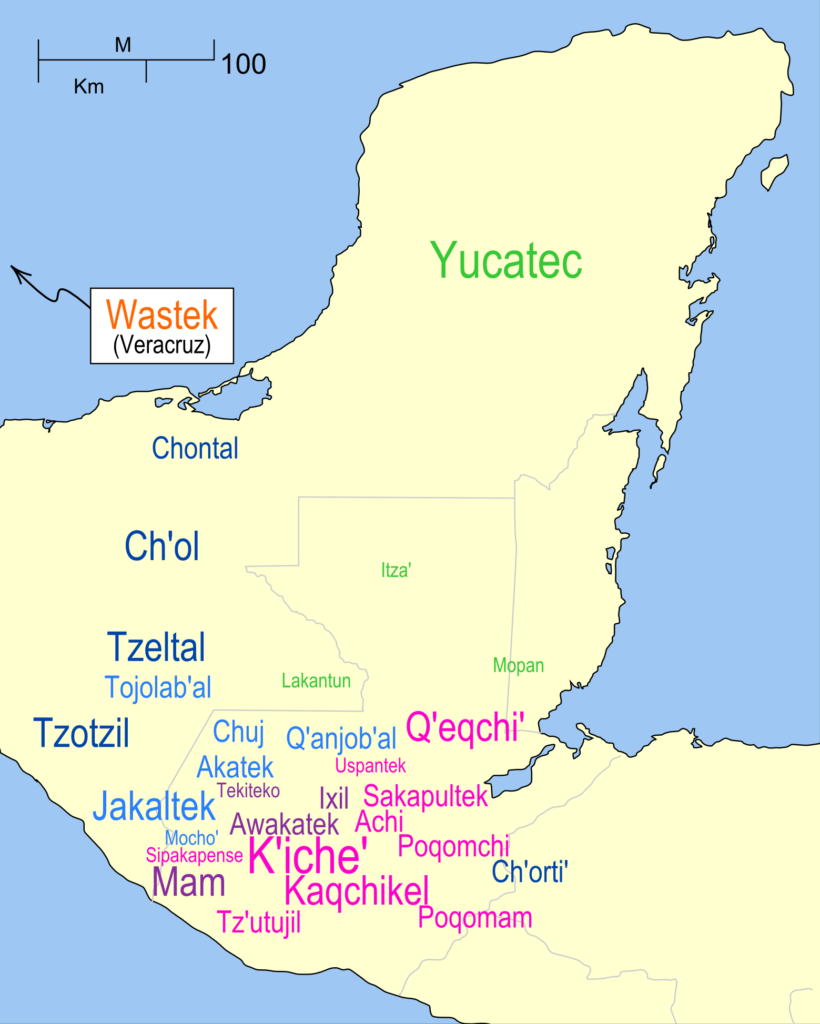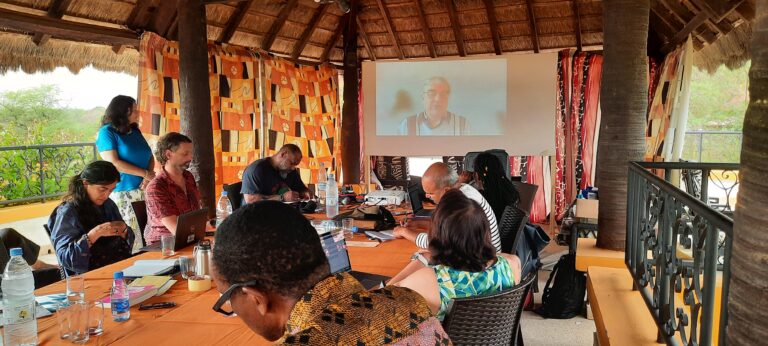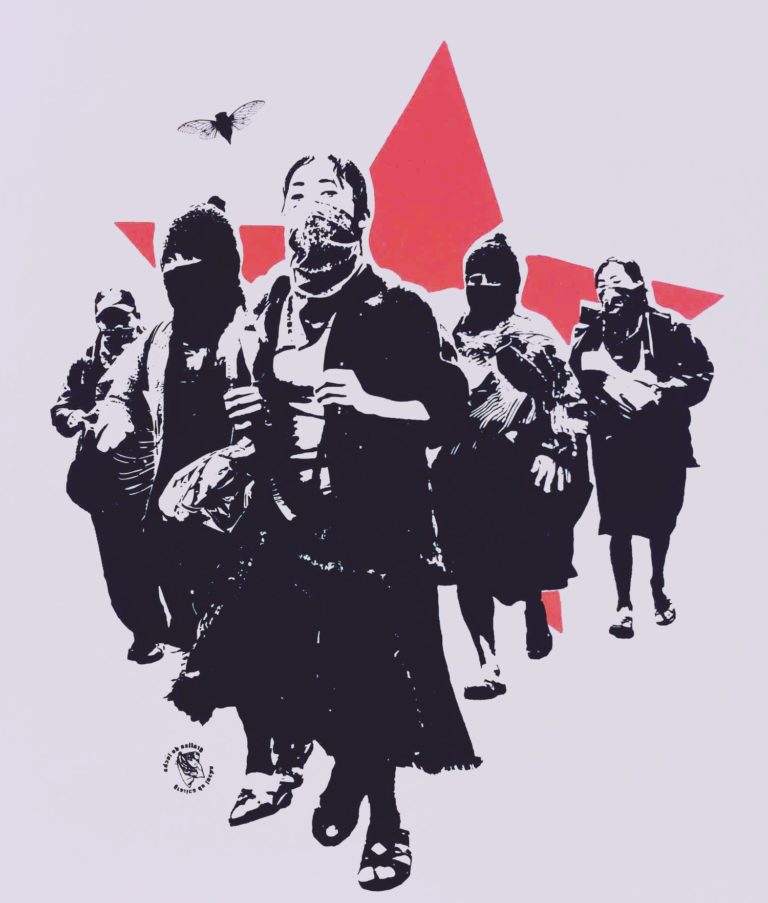by Larry Lohman
Soumitra asks: What creates the oppositional “non-state non-capital” knowledge “that makes movements both necessary and possible” (p. 2)? And that ensures that they have “political continuity” rather than being mere “singularities fixed in time and space” (p. 2)?
In part, Soumitra’s answers are negative. Transformational social movements are not built just by participating in fixed organizations, spectacular events or, for that matter, purely reactive exercises in un-organizational horizontality (p. 11). None of these things really has what it takes to challenge the “state-capital” hierarchies (p. 2) he describes.
I sympathize with Soumitra’s polemic. But I’m wondering if – maybe with a little help from Gustavo’s paper on “New Political Horizons” – there might be ways of identifying the objects of his criticism more clearly. The idea would be to limit the collateral damage that his critique might otherwise inflict on what I reckon are not his real targets. And maybe to find better-defined ways forward through the critique.
Organizations
Reading Soumitra, I found myself (maybe wrongly) associating his organizations with representationalism, vanguardism, statism, parties, NGOs, unions, military structures, maybe even classes (insofar as classes are misleadingly defined as structures instead of processes).[1]
But I also sensed a well-justified fascination with the part that some orthodox institutional structures have played in moments of wider revolutionary change. For example, Soumitra asks whether the encounter with old leftist rigidities was not a key part of the ancestry of the “oppositional knowledge” of contemporary Zapatista indigenous movement-building (pp. 9-11). He also writes that “it is surely not a coincidence that the municipalist revolution in Rojava by the stateless Kurds, led predominantly by women,” was also “initiated by what originally was an orthodox Marxist-Leninist formation” – “supported by an armed militia” to boot.
I reckon there are plenty more examples, whether from the Indian subcontinent, the Andes or wherever. I think of rural Thailand, where – countering all the prevailing nationalism, royalism and authoritarianism – one can still find today the marks of the thinking of the grassroots militants who, incognito, journeyed on foot back and forth across the borders of all the countries of the region 50 years ago and more, helping to make a history that remains mostly unrecorded. Many of those revolutionaries, for sure, were deeply in the grip of those dread “vanguardist” and statist ideologies. Yet their legacy was a resolute left internationalism that is one of the few political currents in the country that remains immune to the exceptionalism, chauvinism and racism that the country’s elites have successfully used to prop themselves up since colonial times.
Maybe the interesting topic is not so much the potential of structured organizations themselves as that of the sparks that are thrown off when they rub up against swiftly-moving processes of historical resistance.
Events
Soumitra is understandably impatient with things like “Twitter revolutions” (p. 6), which he sees as shallow, easily commodifiable reactions devoid of political content, unrooted in either past or future. But here too I see signs, heartening to me, that he might draw back from an unqualified dismissal of the importance of any transient event that might seem on the surface to be spontaneous, merely anarchic, or not built to last (p. 11).
Of course, Soumitra’s overall suspicions about “spectacles” (pp. 6-7, 9) are well-founded. And there’s nothing historically new about “spectacular” events of “opposition” actually ending up reinforcing that old “state-capital.” I remember Ashish Nandy’s descriptions of how colonialism produces “not only its servile imitators and admirers but also its circus-tamed opponents and its tragic counterplayers performing their last gladiator-like acts of courage in front of appreciative Caesars.”[2]
Still, I would love to encourage any hesitations Soumitra might have about rejecting out of hand the significance of supposedly “spontaneous” events. Such a rejection, I think, would run the risk of overlooking the genuinely thick, “oppositional” substance in the recognizable type of spectacular political event exemplified by the Russian Revolution, the fall of the Berlin Wall, Tahrir Square, Gezi Park, Standing Rock, the election of a black US president, or the sudden demise of a Soviet state that “was forever, until it was no more.”[3]
Not to mention the importance of more everyday outbursts in which oppositional “hidden transcripts” of the oppressed,[4] underground legacies accumulated over centuries,[5] or crystallizations of long experience around the dust grain of a fresh concept like “sexual harrassment” (to take an example from the early 1970s)[6] suddenly become public, often triggering startling new mobilizations.
And maybe even, at the extreme, the significance of, say, certain seemingly super-trivial Hollywood-type spectacles, like the scene in the homophobic, male-stupidity movie Dude, Where’s My Car? in which the hetero character played by Aston Kutcher “delivers the lingering tongue” to his buddy Seann William Scott. One stunned gay activist critic claimed that this scene “did more to advance the cause of homosexuality than 25 years of gay activism.”[7]
All these events – wildly diverse as they are – share the “peculiar characteristic of being unthinkable even as [they happen].”[8] In many of them, a “dimension explodes from within a particular context” or “lifeworld” that “is directly experienced as universal”.[9] Just because they are “spectacular” and fleeting doesn’t mean they have no relation to what is “organized,” enduring, or irrevocable (p. 11). Often the fruit of months or decades of officially unrecorded experimentation and rehearsal in the “arts of not being governed,”[10] they can be key moments in political struggles.
Skeptics might well remind us that the collapse of the USSR was followed ultimately by Vladimir Putin; Tahrir Square by the rise of the Muslim Brotherhood; the fall of the Wall by a neoliberal surge and a resurgence of neo-fascism; the election of a black US president by increased inequality, more drone strikes and Donald Trump; and so on and so forth.
All true. But does it follow that spectacular “events” are never more than froth on the surface of “real” resistance? Or that such events cannot be moments in the formation of Soumitra’s “oppositional knowledge”? Doesn’t their official “unthinkability” itself suggest how political they are, how imbued with past and future time? Doesn’t the temptation to dismiss their significance run the risk of simply parroting the capitalist incantation according to which future events of this kind are impossible and past events of this kind never “really” happened?
Like Soumitra, I fear a future in which oppositional politics is reduced to gladiatorial contests, fantastical gestures, analysis-free declarations, state-friendly festivals of “alternatives,” and demonstrations that see no need for slow, error-filled, often tedious long-term alliance-building. But I fear equally any movement that disrespects the power of the unexpected breakthrough event as one form of distillation of and stimulus to revolutionary change.
Horizontality
I find Soumitra’s questioning of programmatic horizontality equally provocative. But this time I feel like I might want to invite him to be maybe even more provocative than he already is.
To get a preliminary observation out of the way: I don’t imagine that Soumitra’s somewhat allergic reaction to the fetishization of “horizontal” structures comes about because he is a big fan of hierarchy. I don’t think he has any nostalgia for the caricature rigidities of Leninism and Stalinism. I don’t believe that he would be very tolerant, either, of long-established “leftist” hierarchies like patriarchal anti-racism, white supremacist feminism,[11] or technocratic, anti-indigenous environmentalism.
In fact, I would like to think that Soumitra’s critique is due at least in part to the fact he senses, as I do, yet another state-capital hierarchy – although a hidden one – right inside many ostentatious celebrations of “horizontality”.
For me, the problem with horizontality is that it is too much like verticality. Verticality means that somebody stands over somebody else. But horizontality does too, insofar as the “matrix” or “tapestry” that enables people to be “horizontally” related is defined and validated from above. If we’re looking to do our bit to support the formation of Soumitra’s “oppositional knowledge,” the last thing we want to do is to try to subsume, replace or devalue the myriad complex relations among resistance movements encountering and trying to respect one another in favour of a blanket relation of “horizontality.”
Groups or movements related “horizontally” are on the same plane. But who made and manages that plane, and who reduces those movements – whether ubuntu, ecofeminism, buen vivir, or degrowth – to dots, threads or bits of embroidery that can fit together properly on it? If we don’t watch out, the master weaver of this “tapestry of alternatives” may become invisible. So too may all sorts of already-existing possibilities of revolutionary solidarity among movements that the state and capital are already trying to reduce to just such dots and threads. The techno-politics of “information” that dates from the mid-20th-century computer revolution is an additional, but usually unacknowledged, force linking this invisibilization with the rhetoric of “horizontality.”
Pretending to react against hierarchy and universalism, in short, horizontality tends in some ways to reinforce both. Most of us seek to avoid the unconsciously authoritarian presuppositions of cultural relativism, but mightn’t we be risking a return to the same path by going all out for “horizontality”?
A Hint from Gustavo
Gustavo’s allusion to the struggles of the Tojolabʼal people of Chiapas in his paper “New Political Horizons: Beyond the ‘Democratic’ Nation-State” (p. 22) offers an opportunity to make some of these points more concrete.
Bringing Tojolabʼal practice into imaginary dialogue with Soumitra’s paper might be a fertile move for several reasons. First, the Zapatista territory that Tojolabʼal and many other practices help shape is a place that much occupies Soumitra’s thoughts. Its relevance to big questions about social movements is obvious to him, as it is to Gustavo and many of the rest of us as well.
Second, the Tojolabʼal as Zapatistas arguably represent a living retort to a particular kind of old-leftist mythology that falls obediently into line with standard rightist fantasies involving development, progress, and bogus political “realism.” According to this mythology, we shouldn’t waste too much time thinking about “little” resistances like that of the Tojolabʼal because, however picturesque and praiseworthy they may be, they are after all just residual “pockets” of opposition[12] fated to be absorbed soon by the state or wiped out by the invincible onslaught of capital’s Other. One variant of this narrative – call it the Jared Diamond drama – goes looking for “collapsed” or “extinct” civilizations that can demonstrate how futile it is to resist humankind’s inevitable penchant for war against nature unless you deploy the understanding of “ecological limits” that is now fortunately provided by modern capitalist science. The ancient Mayans are one of the bit players called up from Central Casting to play this tragic role of a “disappeared” people. No doubt much to the amusement of living Mayans like the Tojolabʼal.[13]

calls on the evolving experience of Maya speakers/listeners. Source:
Wikipedia.
Third, the “oppositional knowledge” of Tojolabʼal arguably speaks directly to Soumitra’s issues of organizations, events, horizontality and the state. As I understand it, Tojolabʼal does not offer itself to capital, the state, or the intelligentsia as a “countable” organization, system, community, “language” or “alternative” located among “items” of similar status on the post-17th-century “international” plane of horizontality generated largely by the imperial nation-state.[14] Instead, as became increasingly evident to the rest of the world after the notably spectacular “events” of January 1994, Tojolabʼal and similar practices resist the state as a long, continually-evolving process that involves subsistence and survival but also organizing (as opposed to organizations), alliance-building, and a particular kind of respect.
It’s usually in the details of particular cases that the texture and potency of what Soumitra calls “oppositional knowledge” become perceptible. It seems to me relevant to an understanding of Zapatista anticapitalist resistance that you are not tojolabʼal by race or community. You’re not tojolabʼal because the language is your mother tongue. Instead, being tojolabʼal signals a commitment and an expectation. Because the concept ʼabʼalsignifies “heard” language, and tojol “fulfilling its vocation,” you fulfill your vocation as tojolabʼal when you know how to listen in a particular way.[15] European practices of “speaking” a language are implicitly opposed here. In tojolabʼal you can’t say “I speak” without at the same time saying “you listen (and will recast and correct me from the perspective of another, which I take account of in advance).”
Carlos Lenkersdorf stresses the “linguistic” aspect of this politics: instead of a sentence consisting of a subject, an object and a verb, you have two sentences with two subjects, two verbs and no objects, and so on.[16] But for me what this aspect of tojolabʼal also calls to mind is a wider global vista of practices that have also come to be “oppositional” in Soumitra’s sense. One example is what the Japanese critic of nationalism Naoki Sakai calls the “heterolingual address”: a stance that enables one to relinquish final authority over “what one oneself means.”[17] With the heterolingual address, you come to grasp your own meanings or beliefs through engaging in dialogue with others, facilitating a solidarity that is grounded not on homogeneity but on a process that allows for distance, including distance from oneself. This stance opposes what Sakai locates in modern history as the “homolingual” regime of translation[18] entrenched by 18th century imperialism, which is today reproduced in the “international world” consisting of commensurable nation-states. Another example of such “oppositional knowledge” capable of linking different movements is what the Brazilian anthropologist Eduardo Viveires de Castro identifies as a distinctively Amazonian mode of translation that “produces difference” in a process of “controlled equivocation” – “controlled in the sense that walking is a controlled form of falling.”[19]

– often blindly reinforced by campaigns that fancy themselves
“oppositional” – of countable, reified languages, nations, cultures, or
“alternatives” arrayed on a horizontal plane. Source: Cornell University.
Closely connected with oppositional Tojolab’al “listening” is the “we-ification” of the “I” that Gustavo refers to. At the centre of medicine as practiced in the Zapatista context are the “names of our (living) body” – “our head”, “our eyes” – and not the “parts of the (dissected, individual, dead) body.” The habit of visiting and listening/speaking to our cornfield daily and being in our house is an aspect of health and human anatomy. As in many indigenous and peasant societies, similarly, it is not the individual criminal but rather “one of us” who commits the crime, and it is a collective responsibility to restore the integrity of a community that strives to include the “criminal.”[20] By the same token, the fact that “everything lives”[21] – including pots, clouds, stones, fire, and in a generalized way, “dead” ancestors – and have familial “we-ized” relations (with indigenous Mesoamericans commonly referring to themselves as the “children of maize”) is profoundly oppositional to commodification processes pursued by Mexican and US state-capital.[22] If, as Soumitra suggests, old-style Marxist thinking forms an indispensible part of the evolution of Zapatista practice, so, arguably, does the oppositional listening of tojolab’al.

Larry Lohman works with the Corner House, a UK research and solidarity organisation. He has contributed to numerous scholarly books as well as to journals on land and forest conflicts, globalization, Southeast Asian environmental movements, racism, commons, climate change and the discourses of development, population, and economics. He is also a founding member of the Durban Group for Climate Justice.
References
[1] E. P. Thompson, “Eighteenth-Century English Society: Class Struggle without Class,” Social History 3 (2), 1978,pp. 133-165.
[2] Ashish Nandy, The Intimate Enemy: Loss and Recovery of Self under Colonialism, second edition, Delhi: Oxford University Press, 2009 [1983]. Nandy’sidea was to refocus studies of colonialism on the nonspectacular “non-players, who construct a West which allows them to live with the alternative West, while resisting the loving embrace of the West’s dominant self” (p. 14).
[3] Alexei Yurchak, Everything Was Forever, Until it Was No More: The Last Soviet Generation, Princeton: Princeton University Press, 2005.
[4] James C. Scott, Domination and the Arts of Resistance: Hidden Transcripts, New Haven: Yale University Press, 1990.
[5] Nick Estes, Our History is the Future: Standing Rock versus the Dakota Access Pipeline, and the Long Tradition of Indigenous Resistance. London: Verso, 2019.
[6] Miranda Fricker, Epistemic Injustice: Power and the Ethics of Knowing, Oxford University Press, Oxford, 2010, pp.159-60; Susan Brownmiller, In Our Time: Memoir of a Revolution, Dial Press, New York, 1990.
[7] Judith Halberstam, The Queer Art of Failure, Durham: Duke University Press, 2011, pp. 58-69.
[8] Michel-Rolph Triollot, quoted in Susan Buck Morss, Hegel, Haiti and Universal History, Pittsburgh: University of Pittsburgh Press, 2009, p. 50.
[9] Slavoj Zizek, Violence, Profile Books, London, 2009, pp.129, 133-34, 217-18. See also Zizek, First as Tragedy, Then as Farce, London: Verso, 2009 and Zizek, Event: A Philosoophical Journey through a Concept, London: Melville House, 2014.
[10] James C. Scott, The Art of Not Being Governed: An Anarchist History of Upland Southeast Asia, New Haven: Yale University Press, 2010.
[11] Kimberle Crenshaw, “Mapping the Margins: Intersectionality, Identity Politics, and Violence against Women of Color,” Stanford Law Review 43 (6), 1991, pp. 1241-1299.
[12] This pernicious, militaristic idiom (“occupying army units mopping up remaining pockets of resistance”) can be heard at one time or another during nearly every leftist or environmentalist gathering in the global North. It is misleading and undialectical especially in that the supposedly vanishing “pockets” it refers to are in fact indispensible to capital as the source of all surplus value.
[13] Patricia A. McAnany and Norman Yoffee, eds., Questioning Collapse: Human Resilience, Ecological Vulnerability, And The Aftermath Of Empire, Cambridge: Cambridge University Press, 2009. See also Liza Grandia, Enclosed: Conservation, Cattle, and Commerce Among the Q’eqchi’ Maya Lowlanders, Seattle: University of Washington Press, 2012.
[14] Naoki Sakai, Translation and Subjectivity: On Japan and Cultural Nationalism, Minneapolis: University of Minnesota Press, 1997, p. 7 and Sakai, “Translation”, Theory, Culture and Society 23 (2-3), 2006, 71-78. On countability see also Donald Davidson, “A Nice Derangement of Epitaphs,” in Ernest Lepore (ed.), Truth and Interpretation: Perspectives on the Philosophy of Donald Davidson, Oxford: Blackwell, 1989, pp. 433-446.
[15] Carlos Lenkersdorf, Aprender a escuchar: Enseñanzas maya-tojolabales, Plaza y Valdés, Mexico, D. F., 2008, pp. 60-61.
[16] Ibid., pp. 62-63.
[17] Sakai, Translation and Subjectivity: On Japan and Cultural Nationalism, p. 7.
[18] This is a “regime of someone relating herself or himself to others in enunciation whereby the addresser adopts the position representative of a putatively homogeneous language society and relates to the general addressees, who are also representative of an equally homogeneous language community.” People can “believe themselves to belong to different languages” yet “still address themselves homolingually” (Sakai, op. cit., pp. 3-4).
[19] Eduardo Viveiros de Castro, “Perspectival Anthropology and the Method of Controlled Equivocation,” Tipití 2 (1), 2004, pp. 3–22, p. 18.
[20] Lenkersdorf, op. cit., pp. 123-24.
[21] Ibid., pp. 126-29.
[22] This resistance does not amount to the proposal of “alternatives” to anybody, and may be incompatible with such proposals. Obviously, tojolab’al is not an “alternative” for Tojolab’al themselves. But neither can it be an alternative for capital, which is compelled to try to treat it as a source of surplus value from which it must in time move on. Nor can tojolab’al be an alternative for the state, as it rejects, for example, the practice of “resources” on which the state is based. Nor is tojolab’al a harbinger of “another world” that is “possible” along the lines of the slogan of the World Social Forum. Tojolab’al is not possible, but actual. Nor is tojolab’al a theory in the sense of an “alternative for intellectuals.” No such effort to promote tojolab’al as part of a “horizontal” tapestry, however well-intentioned, could ever do much to shed the legacy of the very statism that the Zapatistas resist.
One danger of “horizontalist” campaigns is that they risk erecting restricted kinds of supposedly “non-hierarchical” political relation between reified versions of this reality and reified versions of otherwise unrelated processes, including even commodification processes. Such improvised political relations are likely to be in tension with the much more complex, historically-rooted non-horizontal political relations that sustain resistance such as that of the Zapatistas. For example, some ecosystem service exchange proponents have learned to insist that their project is designed to respect the “rights of nature.”







